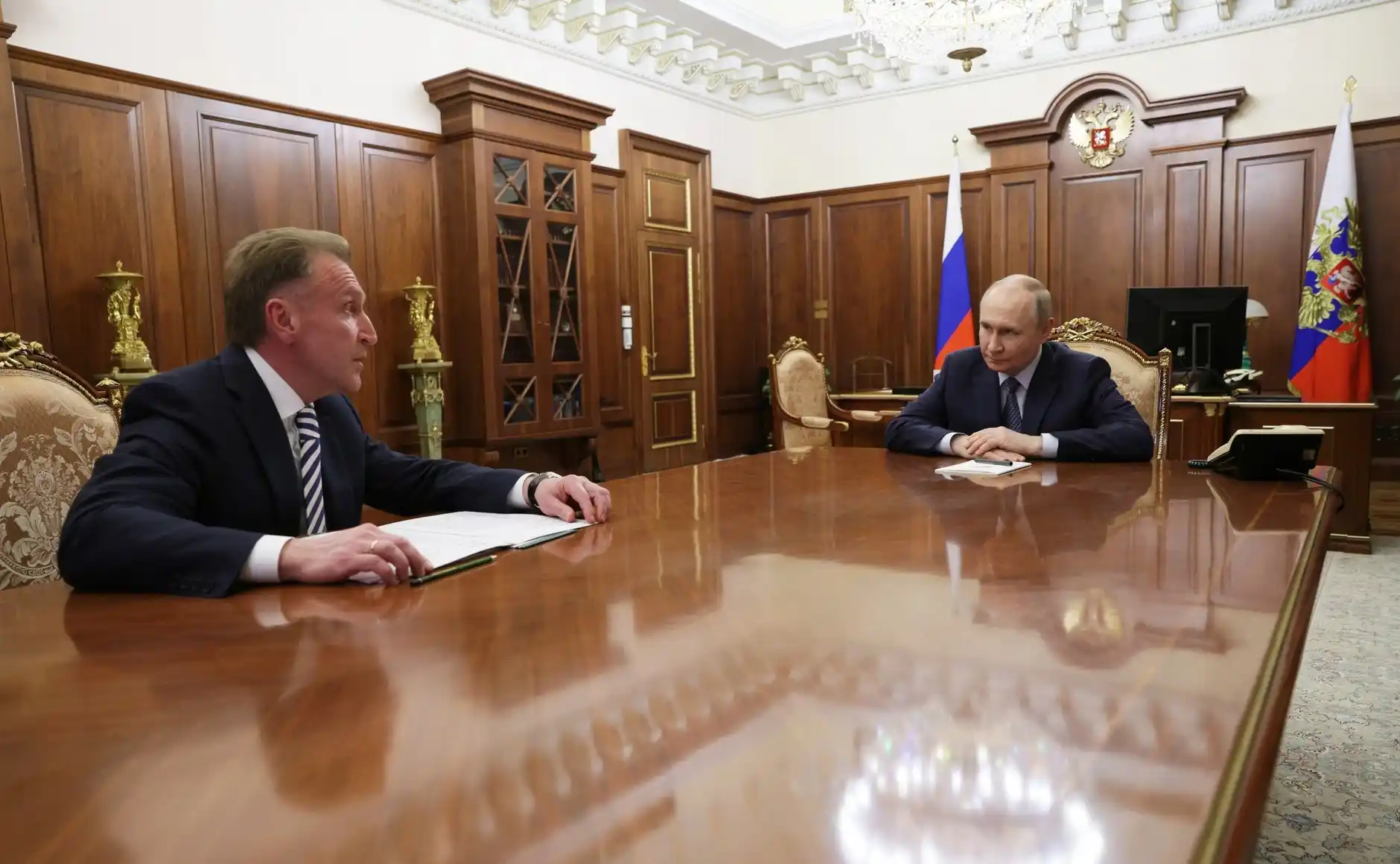The Head of VEB.RF Faces Mounting Challenges Amid Putin’s Discontent
Serious issues are mounting for Igor Shuvalov, head of the state development corporation VEB.RF, as evidenced by both the content and outcome of his recent meeting with Russian President Vladimir Putin. When Putin outlined his vision for achieving technological leadership through domestic innovation—without relying solely on reverse engineering and import substitution—Shuvalov had little to offer in response. He merely cited financial metrics and referenced a few modest, non-transformational technological achievements under VEB’s portfolio: “a gearbox, other components for automobile production, the release of 5G base stations, and some domestically produced trains (?).” He did not forget, however, to redirect responsibility, noting, “Denis Valentinovich Manturov always briefs you on these matters.”
Shuvalov failed to present a detailed report on the tangible returns from VEB’s vast 7.5 trillion ruble business portfolio in driving systemic technological breakthroughs—such as in aviation, genetic engineering, quantum electronics, and other critical sectors.
VEB Shaken by Corruption Scandals and Failed Projects
Meanwhile, VEB.RF has been rattled by a series of corruption-related scandals. One of the latest involves the embezzlement of 7 billion rubles in loans issued through the Blago Group, with the participation of VEB’s Head of Business Coordination and Development, Mr. Filev—whose direct supervisor is Shuvalov’s deputy, Nikolay Tsekhomsky. Other notable failures include collapsed investment projects in solar and wind power generation in Crimea (overseen by Shuvalov’s advisor, Ogorodnikov) and an ongoing audit of VEB-funded initiatives in Donbas due to poor implementation (supervised by Deputy Chairman Tarabrin), among other irregularities.
Blaming the Central Bank: Shuvalov’s Defense Before Putin
Against this backdrop, Shuvalov attempted to explain to Putin that VEB’s passivity in financing systemic technological initiatives—in areas such as aviation, digital tech, and energy—was a result of Central Bank policy, which limits the corporation’s ability to use its resources, including expanding its portfolio of industry-relevant loans and providing long-term financing at acceptable rates.
“We have a special legal status under federal law,” Shuvalov noted, “but we still comply with the Central Bank’s core regulations and guidelines.” He added: “The Central Bank always pays particular attention to us to ensure we don’t pose additional risks to Russia’s financial system.”
This statement clearly shifts responsibility for VEB’s performance not only onto Manturov (and, indirectly, Sergei Chemezov), but also onto Central Bank Governor Elvira Nabiullina. It is worth noting that the Central Bank had previously issued a directive to Shuvalov warning against the misuse of insider information and market manipulation.
Putin’s Response: VEB Ordered to Audit Its Technology Programs
Putin’s dissatisfaction with VEB’s performance was underscored by his direct order to Shuvalov: conduct a comprehensive audit of all support measures related to the national technology agenda. This mandate indicates that, up to now, VEB has failed to systematize these efforts, define financing mechanisms and stages, or develop a coherent understanding of how coordinated technological development should be carried out across the intersectoral economy.
VEB Will No Longer Operate Alone: Economic Ministry Takes the Lead
The audit will be conducted jointly with the Ministry of Economic Development, which has now been designated as the lead agency for technological policy. This move signals that Shuvalov is no longer trusted to unilaterally determine technological priorities or select projects for financing. Minister Maxim Reshetnikov—despite his relative detachment from technological issues—represents the competing “Moscow” faction in Russian bureaucratic politics, as opposed to the systemic liberal (or “syslib”) bloc.
This guarantees a tightening of controls over VEB’s ability to extend favorable credit to affiliated corporations (such as those linked to Viktor Vekselberg, Roman Abramovich, Andrey Melnichenko, Vladimir Lisin, and others), as well as over the use of budget funds for behind-the-scenes financial maneuvers.
The VEB–Ministry of Economic Development alliance now forms the core institutional tandem for Russia’s technological modernization. In contrast, the Ministry of Industry and Trade—headed by Denis Manturov and supervised by new minister Anton Alikhanov—is being relegated to a secondary role, despite having formal responsibility for the majority of Russia’s high-tech sectors.
Observers believe this reshuffle reflects the Kremlin’s poor assessment of Manturov and Alikhanov’s performance in overcoming the technological and industrial crisis in civil aviation and other strategic industries—despite substantial federal budget expenditures.
















